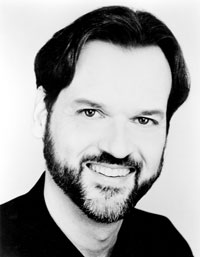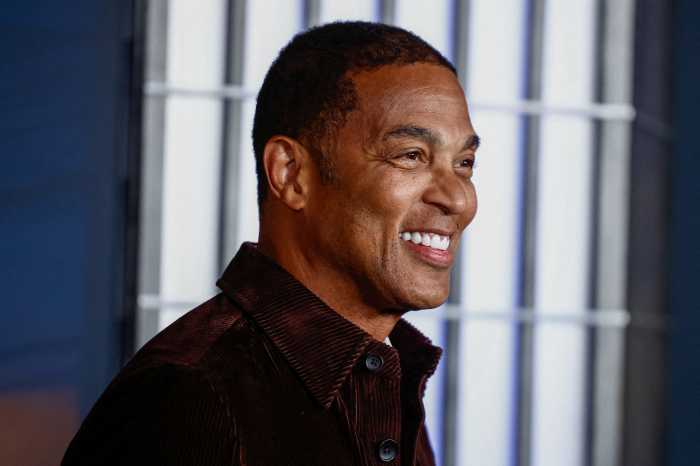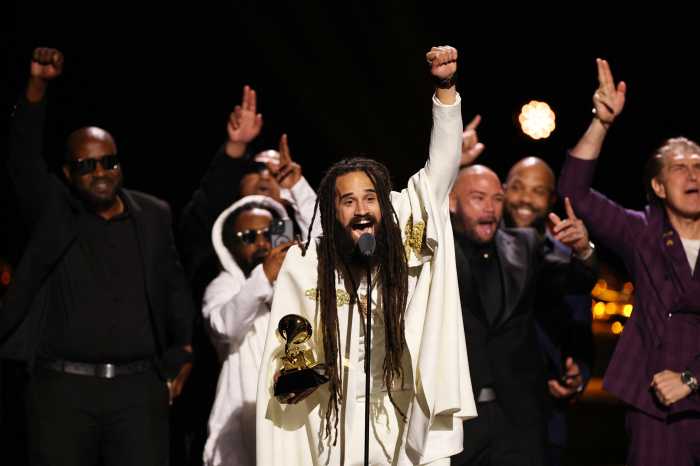Kurt Ollmann renders elegiac Eugene O’Neill lines adapted for the opera stage
Ollmann enjoyed a long professional association with Leonard Bernstein, including his first major recording project,
as Riff in “West Side Story,” for which the young singer made all of $1,500. “I feel like my son made that recording,” Ollmann quipped.
Professionally, Ollmann’s sexuality has never been a hurdle for him. “I would be inclined to think it helped me as much as it hurt me,” he disclosed. However, Ollmann expressed gratitude that as well as young singers coming out more readily, openly gay and lesbian conductors now get hired.
A native of Racine, Wisconsin, Ollmann’s family spent three years in Paris beginning when he was 12, a formative experience which partly explains Ollmann’s mastery of sung French, a supremely rare feat. Later, Ollmann returned to the U.S. and studied Romance languages at Bowdoin College in Maine, where, he recalled, not atypically, he felt like “a confused gay boy.” Romantic couples associated with song repertories (Britten/Pears, Poulenc/Bernac, Baldwin/Souzay) provided inspiration. Gérard Souzay (“a great artist”) proved a career model and important teacher to Ollmann, despite seeming at times of “a dark spirit.”
Though Ollmann has sung opera from Vienna to Seattle, he has never defined himself primarily as an “opera singer,” which might account for why he is not a household name, yet widely respected by his peers. “I’m not somebody who was completely, temperamentally suited to going for the biggest career. I would have had a different strategy if extreme fame and extreme wealth were the driving forces. I’ve wanted to have a life, always. I never wanted my life to be defined by my career. I see this just as much as a weakness as a strength. In my dream version of my life, I would have more power to choose my projects than I do.”
During the 1980s, Ollmann lived in New York, moving to Santa Fe for the 90s, then on to his current home, Milwaukee, which, between his higher-flying gigs, offers worthwhile musical opportunities. With his partner (“current and forever”) Bill Lavonis, a tenor and professor of voice at the University of Wisconsin, Ollmann has given joint recitals and taught master classes. (Lavonis will sing Ruiz to Ewa Podles’ Azucena in Verdi’s “Il Trovatore” in November.)
Ollmann recently returned to Milwaukee’s Skylight Theatre in “The Fantasticks.” While he’s excelled in concerts and recordings of musicals (including “On the Town” opposite Tyne Daly and Gershwin’s “Oh, Kay” with Dawn Upshaw), Ollmann’s ease in that performance idiom developed much later than his initial love of the theater. One of his first artistic goals was directing the likes of Anouilh and Pinter. “Before I recorded ‘West Side Story’ with Bernstein, I was sort of snobbish about that repertoire, actually. I didn’t think that I ‘did’ that. I did late Fauré cycles and things like that, and would stoop to opera to pay the bills,” Ollmann remarked between big giggles. “Since then, that whole ‘music theatre’ repertoire has been a big part of what I do.”
For a sample, Ollmann recommends the video version of Bernstein’s “Candide” rather than the CD set. As for some of his other recordings, Ollmann shared that the “Schumann duets with Lorraine Hunt and Michael Barrett— I’m proud of that.” Ollmann likes the Ned Rorem songs he has recorded. (Ollmann originated the superb cycle “Evidence of Things Not Seen” on New World CDs.) He would also like to experiment with song programs that he selects (one French, one American), plus Schumann’s “Dichterliebe” as well as Schubert’s “Winterreise.”
In terms of the opera stage, Ollmann says his main desire is to return to Debussy’s “Pelléas,” which he feels “born to do.” (The Opera d’Oro CDs are an excellent record of his interpretation in his performance opposite Frederica von Stade with Abbado).
Levy set the current tessitura of Orin’s part with Ollmann’s high-placed voice in mind. Still an avid gym buff, Ollmann noted that he’s now getting away with playing the 23-year-old Orin Mannon role, the Orestes character in “Mourning” created by John Reardon, another tall, handsome gay baritone whose “crossover” career bears some similiarity to Ollmann’s eager embrace of new music. (The two men never met, but Ollmann happened to be listening to a Reardon American songs LP the night he decided to undertake a classical career. Later, after Reardon died of AIDS, Ollmann chanced to visit his Santa Fe house and saw his own recording of Roussel songs on the CD player.)
Ollmann praises the dramatic insight of acclaimed theatre director Bartlett Sher: “He’s very good—a great match with this piece. He reinforces its strengths and has found a visual style that suits its scale.” Ollmann notes that first-time opera director Sher is fortunate in having a cast of uncommonly strong actors (Lauren Flanigan: “brilliant, she makes something tremendous of it;” Emily Pulley: “excellent—she can do everything;” and Welshman Jason Howard: “a wonderful singer, and very funny in rehearsals”) to match the powerhouse lineup of the 1967 Met première (which starred Marie Collier, Evelyn Lear and Sherrill Milnes).
Kurt Ollmann’s ongoing life in song continues on April 8 in New York when the baritone joins New York Festival of Song for the “Men, Women and Food” recital that Steven Blier is cooking up for Merkin Hall.
David Shengold (shengold@yahoo.com) writes for Playbill, Opera and Opera News among other venues.



































